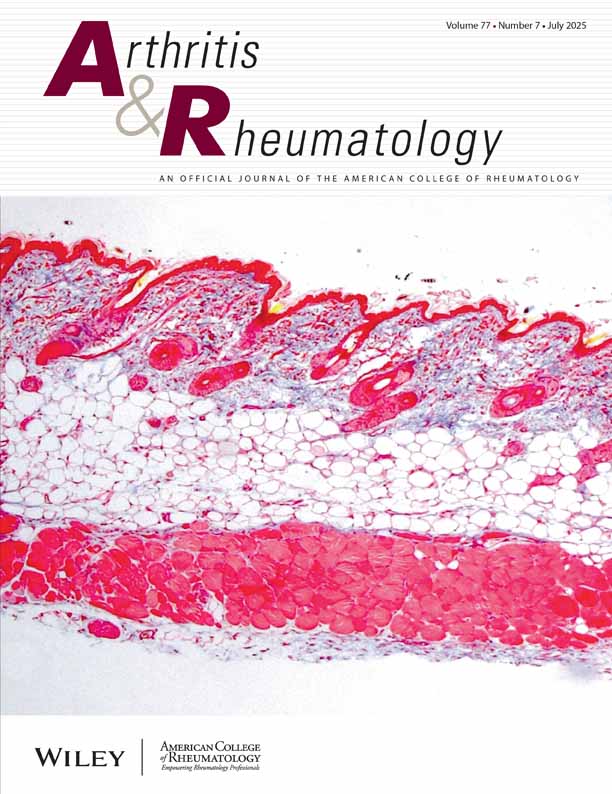In primary Sjögren's syndrome, HLA class II is associated exclusively with autoantibody production and spreading of the autoimmune response
Abstract
Objective
To reevaluate, in a large series of patients with Sjögren's syndrome (SS) recruited from 2 French centers, the question of whether HLA is associated with SS itself or with a pattern of secretion of autoantibodies.
Methods
One hundred forty-nine white patients fulfilling the American-European Consensus Group criteria for SS were divided into 3 subgroups, according to their anti-Ro/SSA and anti-La/SSB status, as follows: group 1 (n = 53), no antibody; group 2 (n = 46), anti-SSA only; group 3 (n = 50), both anti-SSA and anti-SSB. Patients were compared with 222 unrelated healthy subjects representative of the white population in France.
Results
Comparisons between the 149 SS patients and 222 controls confirmed the association of SS with DRB1*03 (the frequency was 25% in patients versus 10% in controls) and DQB1*02 (32% versus 22%). The association between HLA and SS was restricted to patients with anti-SSA and/or anti-SSB; no association with HLA was observed in patients in group 1 (no antibody). The frequency of HLA–DRB1*15 was highest in group 2 (24%), compared with 11% in group 1 and 11% in controls, whereas the frequency of HLA–DRB1*03 was highest in group 3 (44%), compared with 12% in group 1, 19% in group 2, and 10% in controls. Group 2 and group 3 had more clinical and biologic markers of activity than did group 1 but were not clinically different. HLA alleles were not associated with clinical features of the disease, and were associated with only some biologic features: rheumatoid factor positivity, increased serum IgG, and thrombocytopenia were associated with HLA–DRB1*03, and neutropenia was associated with DQB1*01.
Conclusion
HLA class II markers confer genetic susceptibility to Sjögren's syndrome. The association between HLA and SS is restricted to patients with anti-SSA and/or anti-SSB antibodies; HLA is not associated with SS in patients without these autoantibodies. The absence of a difference in disease severity between groups 2 and 3, as well as the restricted association of HLA–DRB1*03 in group 3, strongly suggest that HLA alleles predispose to autoantibody secretion, without being associated with clinical outcome. HLA class II phenotype might support epitope spreading: HLA–DR15 favors anti-SSA synthesis, whereas HLA–DR3 is associated with both anti-SSA and anti-SSB production.




